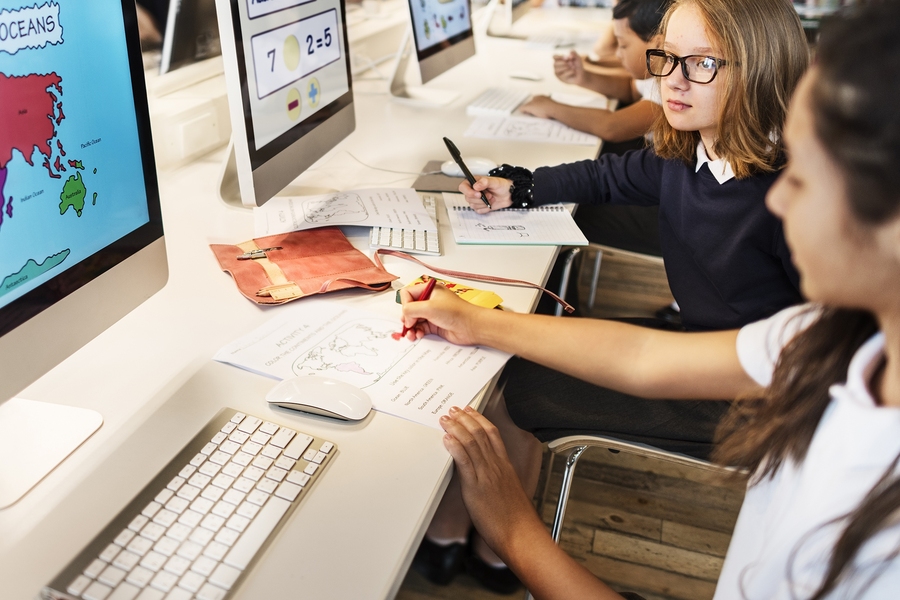Discover the most effective Insurance Strategies to Fit Your Way Of Life and Budget
Discover the most effective Insurance Strategies to Fit Your Way Of Life and Budget
Blog Article
Innovative Methods for Enhancing Technology Education and learning in Today's Discovering Settings
The developing landscape of modern technology education and learning necessitates a reevaluation of conventional pedagogical strategies to better gear up trainees for the complexities of the contemporary globe. Ingenious strategies, such as hands-on knowing experiences and collaborative project-based efforts, play an essential role in connecting theoretical ideas with sensible applications. In addition, the integration of on-line resources and gamification can enhance engagement and inspiration amongst students. As we explore these techniques, it comes to be crucial to take into consideration just how personalized learning can even more enhance the educational experience and cultivate a much deeper link between students and technology. What might this mean for the future of education?
Hands-On Understanding Experiences
Hands-on learning experiences function as a foundation in technology education, properly connecting the void in between academic understanding and sensible application. These experiential tasks enable trainees to involve straight with tools, software, and modern technology, fostering a deeper understanding of principles that are commonly abstract in standard classroom settings.
By integrating hands-on understanding, instructors can facilitate an environment where trainees can experiment, innovate, and troubleshoot. This approach not only cultivates technical abilities but likewise boosts problem-solving capabilities, as students are urged to confront real-world challenges. Moreover, hands-on experiences typically result in raised trainee inspiration and interaction, as students see the instant significance of their researches to functional circumstances.
Additionally, such experiences can take different forms, consisting of lab experiments, simulations, and interactive projects, all of which deal with various discovering designs. The integration of hands-on knowing in innovation education and learning also advertises retention of details, as pupils are most likely to keep in mind principles they have proactively worked with as opposed to passively observed. Overall, hands-on experiences are necessary in preparing pupils for the complexities of the modern-day technological landscape, furnishing them with the abilities and self-confidence needed to succeed in their future professions.
Joint Project-Based Discovering
Collective project-based learning encourages students to interact in teams to resolve complex, real-world issues, fostering crucial skills for the modern labor force. This approach motivates energetic involvement, essential reasoning, and creativity, as pupils work out duties, share obligations, and jointly develop options. By immersing themselves in tasks that reflect authentic obstacles, learners develop a much deeper understanding of the topic while sharpening their ability to connect and work together effectively.
In technology education, joint project-based knowing can manifest via interdisciplinary projects that include components of design, engineering, and coding. As an example, trainees could work together to develop a mobile application or style a model that addresses a social concern, needing them to incorporate various technical ideas and devices. This experiential discovering not just boosts technical efficiency yet also grows analytic abilities and adaptability.
In addition, such collective ventures promote a feeling of neighborhood among pupils, fostering social connections and a common commitment to their project outcomes. As they navigate the complexities of team effort, students learn to appreciate diverse perspectives and take advantage of each other's staminas, preparing them for future professional settings where collaboration is vital. Eventually, collaborative project-based learning is a foundation of effective innovation education and learning.
Integration of Online Resources

The combination of on-line sources assists in access to updated information and industry requirements, which is necessary in a quickly evolving technological landscape. By leveraging systems such as MOOCs (Large Open Online Courses) and specialized training internet sites, teachers can supplement typical educational programs with real-world applications, making it possible for students to engage with current fads and methods.

Inevitably, the thoughtful assimilation of online resources in technology education cultivates a much more dynamic, appealing, and appropriate learning experience, equipping pupils with the abilities and knowledge essential to prosper in a significantly electronic globe.
Gamification Strategies in Education And Learning
The unification of gamification methods in education represents a powerful strategy to even more engage pupils and improve their knowing experiences. By incorporating game-like aspects such as factors, badges, and leaderboards right into the curriculum, teachers can stimulate inspiration and cultivate a feeling of competitors amongst learners. These methods encourage involvement and determination, specifically in topics that might or else show up discouraging.
Gamification can take different types, including interactive quizzes, joint tasks, and immersive simulations, which permit students to use their understanding in sensible contexts. This interactive approach not just makes discovering pleasurable however likewise reinforces essential ideas visit homepage with repetition and immediate feedback. As pupils progress, they can track their achievements, advertising a growth attitude and a feeling of accomplishment.
Furthermore, gamification facilitates differentiated guideline by satisfying varied knowing styles and speeds. Trainees are empowered to take ownership of their understanding trip, permitting a more tailored educational experience. In a progressively digital world, making use of gamification strategies can bridge the gap between conventional education and modern-day technical advancements, inevitably preparing students for future challenges.
Personalized Knowing Approaches
Personalized finding out methods are increasingly recognized as vital for resolving the diverse demands and choices of students in today's academic landscape. These strategies equip learners by tailoring academic experiences to private rate of interests, toughness, and finding out paces, thereby enhancing interaction and retention.
In modern technology education, customized knowing can take various forms, including adaptive discovering innovations, individualized curricula, and project-based learning customized to student passions. Platforms that make use of fabricated knowledge can examine a trainee's performance information to advise specific resources or activities that line up with their discovering style.
Furthermore, tailored understanding urges trainee firm, enabling learners to establish objectives and choose paths that resonate with their goals (Education). This freedom fosters a deeper connection to the product, inevitably bring about improved results
Educators play a crucial duty in this process, utilizing formative evaluations to check progress and adjust guideline accordingly. Joint devices and electronic portfolios can also help with individualized discovering, permitting pupils to mirror on their trips and showcase their achievements.
Final Thought
In final thought, enhancing technology education and learning in contemporary learning settings demands the execution of innovative strategies that focus on hands-on learning, joint jobs, and the assimilation of online resources. Gamification methods serve to raise interaction and motivation, while customized knowing methods suit individual strengths and foster student firm. Jointly, these techniques develop a dynamic instructional experience that prepares pupils for real-world difficulties and cultivates important abilities for future success in a rapidly advancing technical landscape.
As we check out these approaches, it becomes important to take into consideration just how tailored understanding can additionally improve the educational experience and cultivate a deeper link in between students and innovation. The assimilation of hands-on knowing in technology education likewise promotes retention of details, as students are more likely to read more bear in mind ideas they have actually actively worked with rather than passively observed.The unification of gamification methods in education stands for a powerful method to even more engage pupils and improve their learning experiences. Trainees are encouraged to take ownership of their knowing journey, permitting for a more individualized educational experience.In final thought, improving modern technology education and learning in modern knowing settings demands the execution of ingenious methods that prioritize hands-on learning, collaborative tasks, and the assimilation of on the internet sources.
Report this page